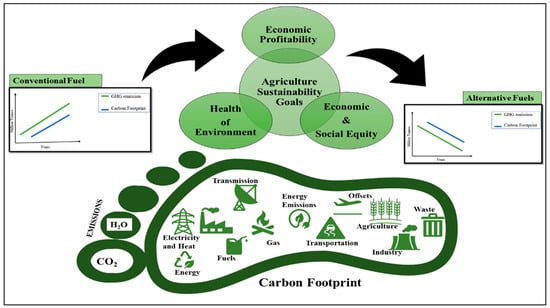The traditional reliance on gasoline for transportation is undergoing a transformative shift towards alternative fuels and sustainable driving options. This comprehensive exploration delves into various alternative fuels, their environmental benefits, technological advancements, market trends, and the evolving landscape of sustainable mobility.

1. Introduction: The Need for Alternative Fuels
As concerns over climate change and air pollution escalate, the automotive industry is exploring alternative fuels to reduce greenhouse gas emissions and dependency on fossil fuels. From biofuels to hydrogen and beyond, alternative fuels offer diverse solutions to achieve sustainable transportation.
2. Types of Alternative Fuels
Alternative fuels encompass a range of options that diversify the energy sources for vehicles:
- Biofuels: Derived from organic materials such as corn, sugarcane, or algae, biofuels include ethanol and biodiesel. They can be blended with gasoline or diesel fuel to reduce carbon emissions and promote renewable energy use.
- Hydrogen Fuel: Hydrogen fuel can be produced through electrolysis using renewable electricity or from natural gas with carbon capture and storage (CCS). Fuel cell vehicles convert hydrogen into electricity, emitting only water vapor as a byproduct.
- Natural Gas: Compressed natural gas (CNG) and liquefied natural gas (LNG) are cleaner-burning alternatives to gasoline and diesel. They produce fewer emissions of nitrogen oxides (NOx) and particulate matter (PM) compared to conventional fuels.
- Electricity: Electric vehicles (EVs) powered by rechargeable batteries are gaining popularity for their zero tailpipe emissions and energy efficiency. Advances in battery technology and charging infrastructure are expanding the viability of electric mobility.
3. Environmental Benefits
Alternative fuels offer significant environmental advantages over conventional gasoline and diesel:
- Reduced Greenhouse Gas Emissions: Biofuels and hydrogen fuel significantly reduce carbon dioxide (CO2) emissions compared to fossil fuels. They contribute to mitigating climate change and improving air quality in urban areas.
- Resource Conservation: Renewable biofuels reduce dependency on finite fossil fuel reserves and promote sustainable agriculture practices. Hydrogen fuel derived from renewable sources supports energy security and environmental sustainability.
- Air Quality Improvement: Alternative fuels produce fewer pollutants such as sulfur dioxide (SO2), NOx, and PM, leading to cleaner air and healthier communities.
4. Technological Advancements
Advances in alternative fuel technologies drive performance, efficiency, and affordability:
- Biofuel Production: Research and development focus on improving the efficiency of biofuel production from non-food feedstocks, such as agricultural residues and algae. Sustainable biofuel pathways reduce lifecycle greenhouse gas emissions and enhance energy security.
- Hydrogen Fuel Cells: Innovations in fuel cell technology increase efficiency, durability, and cost-effectiveness. Hydrogen infrastructure development, including production, storage, and distribution, supports the commercialization of fuel cell vehicles.
- Electric Vehicle Technology: Breakthroughs in battery chemistry and manufacturing enable longer driving ranges and faster charging times for EVs. Smart grid integration and vehicle-to-grid (V2G) capabilities optimize energy use and support renewable energy integration.
5. Market Trends and Consumer Adoption
Consumer interest in alternative fuels and sustainable driving options is growing, driven by several factors:
- Environmental Awareness: Increasing public concern over climate change and air quality motivates consumers to choose low-carbon transportation solutions. Government incentives and policies promote the adoption of alternative fuels and electric vehicles.
- Technological Advancements: Improved performance, affordability, and accessibility of alternative fuel vehicles encourage consumer adoption. Infrastructure investments in charging stations and hydrogen refueling stations enhance convenience and address range anxiety.
- Corporate Sustainability Goals: Companies are integrating alternative fuel vehicles into their fleets to reduce carbon footprints and achieve sustainability targets. Fleet electrification and renewable energy procurement support corporate social responsibility initiatives.
6. Infrastructure Development
Investment in infrastructure is critical to support the widespread adoption of alternative fuels:
- Charging Networks: Expansion of electric vehicle charging infrastructure in urban areas, highways, and workplaces increases accessibility and convenience for EV owners. Fast-charging technologies reduce charging times and enhance the viability of electric mobility.
- Hydrogen Refueling Stations: Deployment of hydrogen refueling infrastructure facilitates the commercialization of fuel cell vehicles and supports long-distance travel. Public-private partnerships and government incentives drive investment in hydrogen infrastructure projects.
- Policy Support: Regulatory frameworks, incentives, and standards for alternative fuels promote market growth and innovation. Collaboration between policymakers, industry stakeholders, and research institutions accelerates the transition to sustainable transportation solutions.
7. Challenges and Future Outlook
Despite progress, challenges remain in scaling alternative fuels and sustainable driving options:
- Cost Competitiveness: Initial purchase costs and infrastructure investments for alternative fuel vehicles can be barriers to adoption. Continued cost reduction and incentives are needed to enhance affordability and market competitiveness.
- Infrastructure Expansion: The need for continued investment in charging and hydrogen refueling infrastructure to meet growing demand and address range limitations. Public awareness and education about alternative fuels and their benefits are essential to encourage adoption.
- Technological Innovation: Research and development in advanced fuel technologies, battery storage, and renewable energy integration are crucial for achieving long-term sustainability goals. Collaboration across sectors and regions fosters innovation and supports global energy transitions.
8. Global Impact and Sustainability Goals
Alternative fuels play a vital role in achieving global sustainability goals and reducing greenhouse gas emissions:
- Climate Action: Transitioning to alternative fuels reduces carbon emissions from the transportation sector, contributing to global efforts to mitigate climate change and achieve carbon neutrality.
- Energy Security: Diversifying energy sources with renewable biofuels, hydrogen, and electricity enhances energy security and reduces dependency on imported fossil fuels.
- Innovation and Collaboration: International cooperation and knowledge sharing accelerate the development and deployment of alternative fuel technologies. Multilateral agreements and partnerships promote sustainable development and global energy transitions.
9. Conclusion: Embracing Sustainable Mobility
Alternative fuels and sustainable driving options are essential to creating a cleaner, greener future for generations to come. By embracing biofuels, hydrogen, electricity, and other innovative technologies, we can reduce carbon footprints, improve air quality, and enhance energy security. Together, we can drive towards a more sustainable transportation system that preserves the environment and promotes economic prosperity.
Explore the diverse world of alternative fuels, embrace sustainable mobility solutions, and join the global movement towards a low-carbon future. Together, we can navigate beyond gasoline and unlock the potential of alternative fuels to drive positive change and build resilient communities worldwide.



